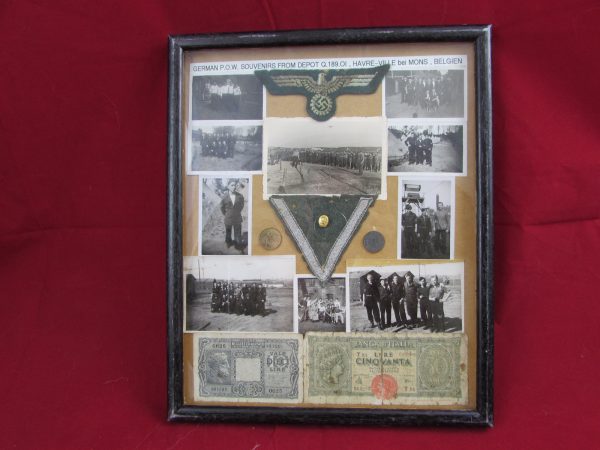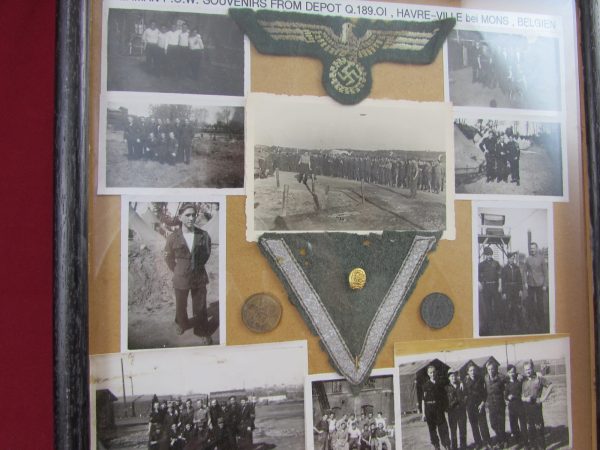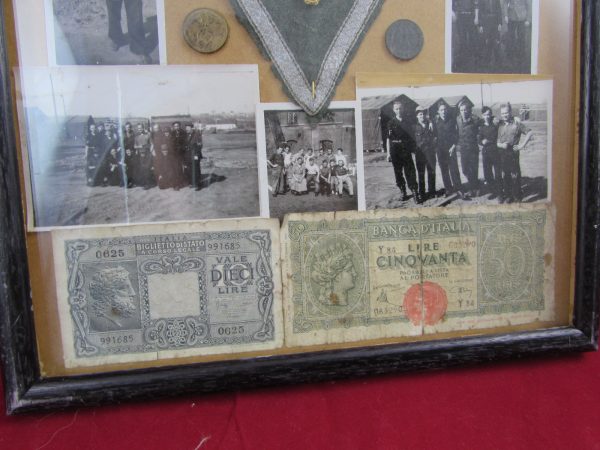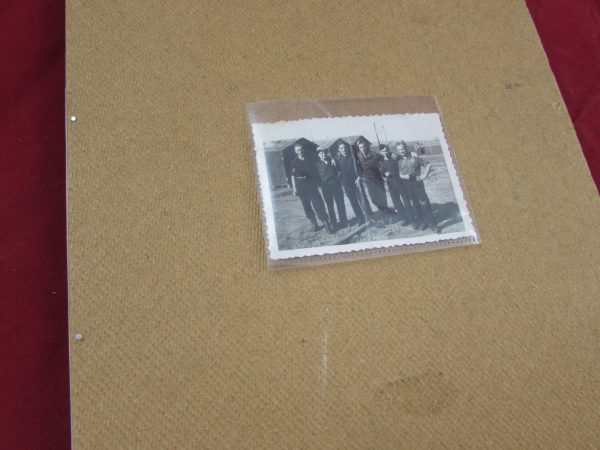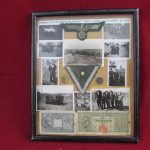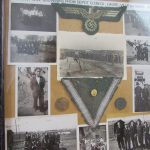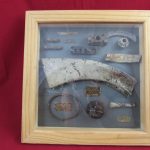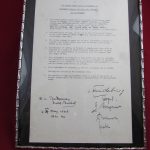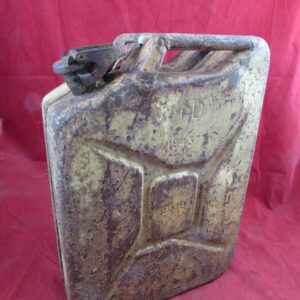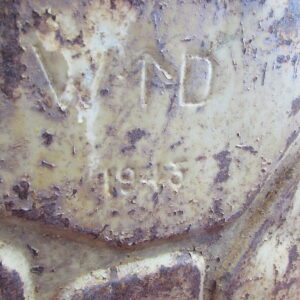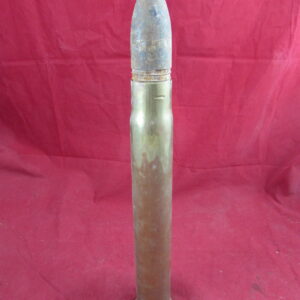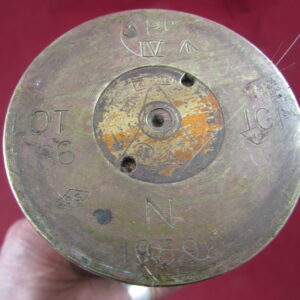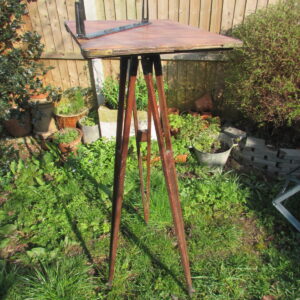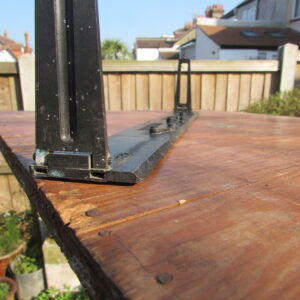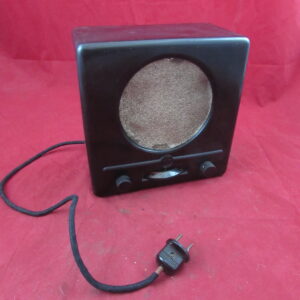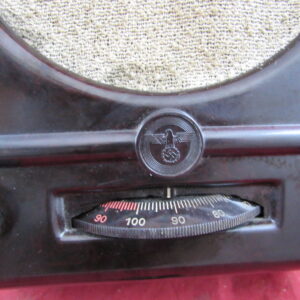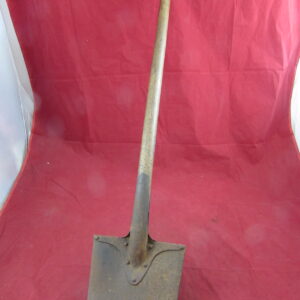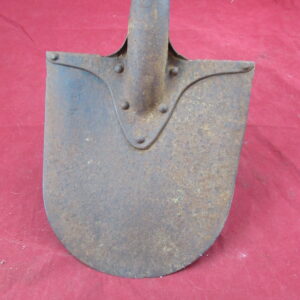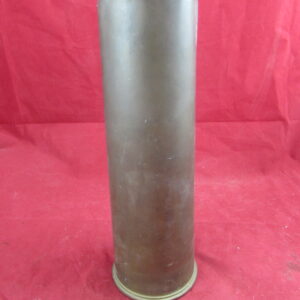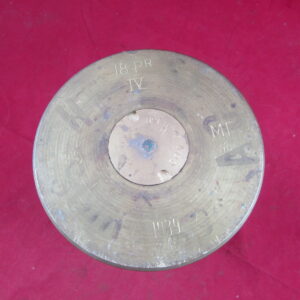German POW Souvenir
Views: 2344
£140.00
German POW Souvenier’s , depot QW.189. OI
- Description
- Shipping and Delivery
Description
German POW Souvenir depot QW.189. OI
Framed selection of artefacts from a German POW from Depot Q. 189. OI, Havre-Ville bei Mons , Belguim.
Selection of insignia and photo’s, and some paper currency.
Large numbers of German prisoners of war were held in Britain between the outbreak of the Second World War in September 1939 and late 1948. Their numbers reached a peak of around 400,000 in 1946, and then began to fall when repatriation began.[1] The experiences of these prisoners differed in certain important respects from those of captured German servicemen held by other nations. The treatment of the captives, though strict, was generally humane, and fewer prisoners died in British captivity than in other countries. The British government also introduced a programme of re-education, which was intended to demonstrate to the POWs the evils of the Nazi regime, while promoting the advantages of democracy. Some 25,000 German prisoners remained in the United Kingdom voluntarily after being released from prisoner of war status.[2]
Early phase of the war
Initially, the only Germans captured by the British were naval personnel (mainly submariners) and members of the Luftwaffe (German air force).[3] The first prisoners were the captain and crew of a submarine, U-39, on 14 September 1939, only days after the outbreak of war. The commanding officer, Captain Gerhard Glattes, was to serve one of the longest terms as a POW in British hands: he was finally released in April 1947 after seven-and-a-half years in captivity.[4]
Initially two prisoner of war camps were established:
This forty-room mansion was reserved for officers and became known as the ‘U-boat Hotel’. It had space for 200 prisoners of war, but in November 1939 it was occupied by only twenty-one men.[5]
This was a former cotton mill housing 2,000 ‘other ranks’, or in other words, those who were not a commissioned officer.[3]
During the early phase of the war, Britain adopted a policy of sending all enemy prisoners to Canada. This measure was intended to preclude the possibility of POWs escaping and making their way back to Germany. A further reason given was that food and other necessities were in short supply within the United Kingdom. Consequently, men were generally shipped to Canada as soon as there were enough to fill a troop carrier.[3] This meant that the total held within the UK seldom exceeded 2,000 men, whereas about 9,000 German prisoners were being held in Canada by late 1942.[6]
German POW Souvenir depot QW.189. OI
At this time, Antiqurio ships to locations within the United Kingdom mainland. Items can be shipped worldwide by prior agreement please contact us. The risk of loss and title for all items ordered on this website pass to you when the items is delivered to the shipping carrier. We are unable to calculate shipping automatically for multiple items when shipping internationally please contact us by email if you wish to purchase more than one item and live outside of the UK; we are working to resolve this
International
Customs and import duties may be applied to International orders when the shipment reaches its destination. This is not imposed by Antiqurio and these charges are the responsibility of the recipient of your order and are likely to vary from country to country. Contact your local customs office for details.
Shipping laws are different in each country. It is your responsibility to check with your Customs office to verify whether the country to which you are shipping permits the shipment of your products. Antiqurio is not responsible for any direct, indirect, punitive, or consequential damages that arise from improper international shipping practices.
